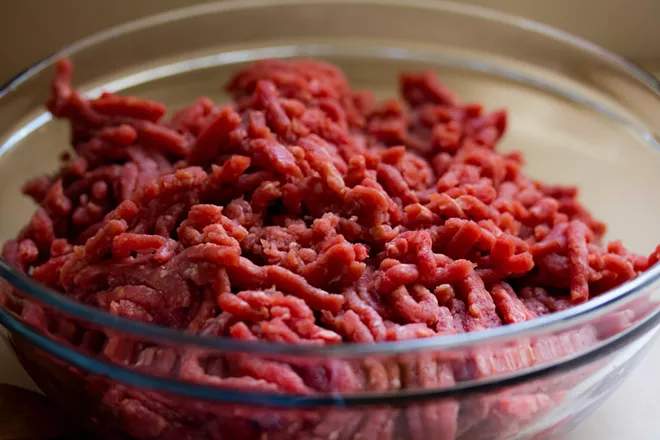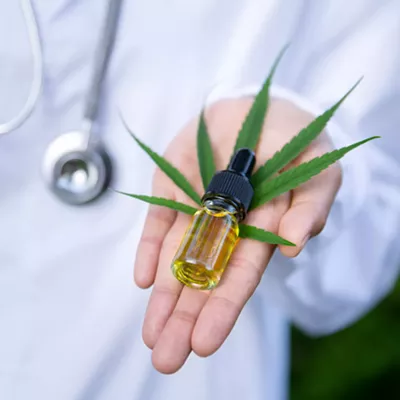The bacteria most often responsible for the outbreaks of bloody diarrhea you learn about in the media is Escherichia coli O157:H7. This bacteria most often gets to humans from cows that can carry the bacteria without a problem because they lack a receptor in their guts that permits transmission of the bacterial toxin into the bloodstream. But humans have loads of these receptors in their guts, and other places as well, with a high proportion in their kidneys. So if we ingest these bacteria — even a tiny amount — the toxins they produce can cause us bloody diarrhea and in some cases, kidney failure.
An exploration of the various acts of animal and vegetable husbandry that may transpire leading to E. coli contaminating food is beyond the charter of this periodical. But assuredly, the poop gets to the food, making it essential to thoroughly wash fruit and vegetables, no matter how pristine their appearance may be.
The matter of contaminated meat is quite a bit more interesting.
About 10 percent of ruminant animals like cows are "super shedders" of E. coli O157:H7, accounting for about 90 percent of cases of diagnosed infections. Still, you may generally safely enjoy a nice tenderloin or T-bone rare and bloody in the middle, because if bacteria or toxins are contaminating the surface of the meat, a good searing of the outside of the steak is usually adequate to kill any unwanted guests.
But grinding beef can deliver any bacteria contaminating the outside of the meat to the inside of a burger, so it needs to be cooked throughout to kill throughout. If ever you are asked, "How would you like your burger?" the only safe answer is, "Done all the way, of course."
You may be puzzled about how that bacteria gets to the surface of the cut meat. It's not always clear, but we can presume it might be during the butchering and handling process: if the gastrointestinal tract of the cow is disrupted or possibly if there is contaminated water that somehow comes into contact with the meat. In any case, there's no denying that cow manure is the vector for all E. Coli O157-H7 infections, whether on animal, vegetable or in water.
As consumers, we must be ever vigilant and resolute to rinse our produce well, wash our hands thoroughly before we eat, and cook ground beef throughout. But we shouldn't demonize the cows — they are just doing their thing, chewing their cud, unaware of the danger that lurks within.
I hope you will take heed of this cautionary tale about E. coli O157:H7. And who knows, the odyssey of salmonella and an assortment of other pathogens that cause food poisoning could be the subjects of their own epic tales that we may explore another time. But all flippancy aside, this is a serious issue. I have cared for numerous children with a kidney complication from E. coli called called Hemolytic Uremic Syndrome. It's the most common cause of acute kidney failure in infants and young children. So make sure you cook that ground meat through, and rinse that produce well with clean water.
For now, bon appetit!
Matt Thompson is a pediatrician at the Kids Clinic in Spokane.



















